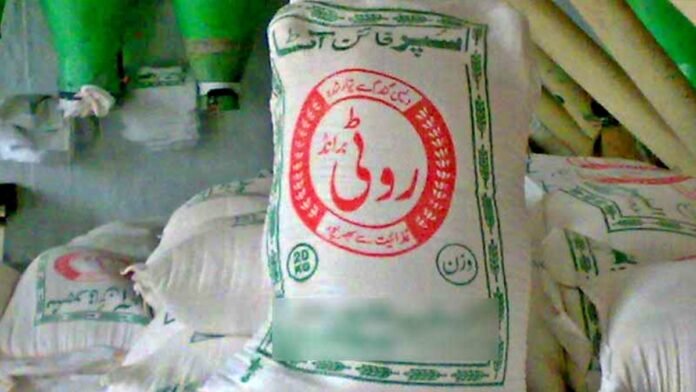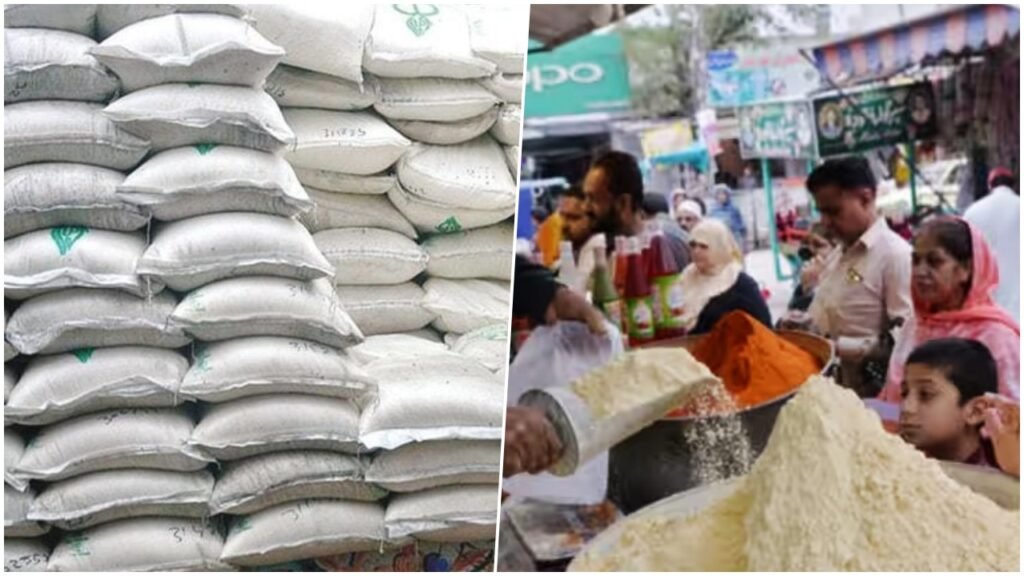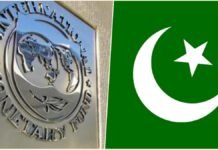
New Delhi: Pakistan, a country of 230 million people, is facing one of its most severe food crises in recent history, as the prices of wheat flour have skyrocketed due to a shortage of wheat supply and an economic downturn. The situation has triggered widespread protests, chaos, and stampedes across the country, as people struggle to afford the staple food item.
Causes of the crisis
The crisis has multiple causes, some of which are:
- Floods: According to the Government of Pakistan, more than 80 percent of the country’s crops were destroyed by the devastating floods that hit over the summer of 2023. The floods affected millions and damaged infrastructure, livestock, and agricultural land.
- Economic instability: Pakistan is also facing a looming economic crisis, as its foreign exchange reserves have fallen to a critical level of $4.3 billion, barely enough for three weeks of imports. The country had to turn to the IMF in 2019 for a $6 billion economic bailout, but the program was suspended in March 2020 due to the COVID-19 pandemic and has undergone many starts and stops since then, as the government failed to meet some of the IMF’s demands. As a result, the country has been unable to clear payments for imports, including food and medicine, which are stuck at the ports. The country also devalued its currency, which increased the cost of imported wheat and other commodities.
- Mismanagement and smuggling: The crisis has also been exacerbated by the mismanagement of the food department and the flour mills, which have failed to ensure adequate supply and distribution of wheat and flour in the market. There have also been allegations of wheat smuggling to Afghanistan, which has reduced the domestic availability and increased the prices.
Impacts of the crisis
The crisis has had severe impacts on the lives and livelihoods of the people of Pakistan, especially the poor and the working class. Some of the impacts are:
- Inflation and hunger: The prices of wheat flour, which is one of the key constituents of the staple diet of people in Pakistan, have soared to unprecedented levels, ranging from Rs 140/kg to Rs 160/kg in different cities. The government has also increased the prices of subsidized wheat, which is sold at Rs 65/kg through mini-trucks and vans escorted by armed guards. However, the supply of subsidized wheat is limited and insufficient to meet the demand, leading to long queues, clashes, and stampedes among the people trying to buy cheap flour. The high flour prices have also affected the prices of bread and other wheat products, making them unaffordable for many. The purchasing power of the working class in Pakistan has decreased by 30 percent in the last four years, as they earn less than $2 (160 Indian rupees) a day. The crisis has pushed millions of people into hunger and malnutrition, as they are unable to buy enough food for themselves and their families.
- Protests and unrest: The crisis has also sparked widespread protests and unrest across the country, as people have expressed their anger and frustration over the government’s failure to address the situation. The protesters have organized massive rallies, sit-ins, road blockades, and strikes against the increase in wheat prices and the shortage of flour. Due to the protests, shops, markets, restaurants, and business centers have remained closed in many areas, affecting normal life and economic activity. The protests have also disrupted attendance in private and government offices and educational institutions, as well as the transportation and communication systems. The protests have sometimes turned violent, as the police and the security forces have clashed with the protesters, resulting in injuries and arrests.
Possible solutions
The crisis requires urgent and comprehensive solutions from the government and other stakeholders, to ensure food security and economic stability in the country. Some of the possible solutions are:

- Importing wheat: The government has approved the import of 300,000 tonnes of wheat to relieve the shortage of flour supplies in the market. However, this is a short-term measure and may not be enough to meet the demand and lower the prices. The government needs to ensure timely and transparent procurement and distribution of imported wheat, as well as adequate storage and quality control. The government also needs to facilitate the clearance of payments for imports, especially food and medicine, which are stuck at the ports.
- Increasing domestic production: The government needs to invest in increasing the domestic production of wheat and other crops, by providing support and incentives to the farmers, such as seeds, fertilizers, pesticides, irrigation, credit, insurance, and procurement. The government also needs to improve the infrastructure and technology for agriculture, such as roads, bridges, warehouses, cold storage, processing units, and machinery. The government also needs to implement effective policies and regulations for the management and conservation of land, water, and other natural resources, as well as for the mitigation and adaptation of climate change, which poses a serious threat to the agricultural sector.
- Curbing mismanagement and smuggling: The government needs to crack down on the mismanagement and corruption in the food department and the flour mills, which have contributed to the crisis. The government needs to ensure accountability and transparency in the supply and distribution of wheat and flour and in the allocation and utilization of funds and subsidies. The government also needs to curb the smuggling of wheat to Afghanistan, which has reduced the domestic availability and increased the prices. The government needs to strengthen the border security and customs, as well as to cooperate with the Afghan authorities, to prevent and control the illegal trade of wheat and other commodities.
- Addressing economic instability: The government needs to address the economic instability and uncertainty that has worsened the crisis. The government needs to resume and complete the IMF program, by fulfilling the IMF’s demands and implementing the necessary reforms. The government also needs to diversify and boost its sources of revenue and foreign exchange, by promoting exports, remittances, tourism, investment, and other sectors. The government also needs to reduce its expenditure and debt, by cutting down on unnecessary and wasteful spending, such as defense, subsidies, and loans. The government also needs to improve its governance and institutional capacity, by enhancing its efficiency, effectiveness, responsiveness, and accountability.
Pakistan is facing a grave food crisis, as the prices of wheat flour have soared due to a shortage of wheat supply and an economic downturn. The crisis has triggered widespread protests, chaos and stampedes across the country, as people struggle to afford the staple food item. The crisis requires urgent and comprehensive solutions from the government and other stakeholders, to ensure food security and economic stability in the country.




















































